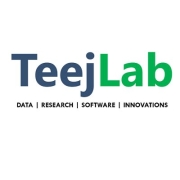API Management solutions provide a comprehensive framework for developing, publishing, maintaining, and securing APIs. These solutions help streamline the interaction between different systems, improving digital connectivity and service delivery.
API Management caters to organizations seeking enhanced control over API lifecycles. It enables the creation of scalable APIs, ensuring secure access and usage tracking. This approach facilitates collaboration, innovation, and maintenance of reliable digital ecosystems while mitigating potential security risks. The tools often include features for analytics, security, and monetization strategies, allowing businesses to drive value from their API platforms.
What are the critical features to consider?
What benefits or ROI should be evaluated?
In financial services, API Management facilitates integration with fintech platforms for seamless transactions. In healthcare, it enables interoperability between diverse health information systems, enhancing patient data exchange. Retail benefits from real-time inventory management and customer engagement through API integration with platforms.
API Management assists organizations in efficiently handling API development, deployment, and security, optimizing digital transformation efforts. It aids in creating consistent and secure digital interfaces, promoting operational efficiency, and enhancing user satisfaction through effective API utilization.











































































With an exploding number of applications taking over the digital world, companies are turning toward API management to expose more data so that they can provide more personalized app experiences for customers, partners, and internal users. APIs are creating exponential growth for companies and are enabling them to accomplish business goals faster than ever before. API management has proven to transform organizations by increasing efficiency, fostering innovation efforts, and helping them bring new services and products to market faster.
The tool that resides between a collection of backend services and a client is known as an API management gateway. Its programming is the single-entry point for back-end APIs and both internal and external microservices. An API management gateway enforces security, provides elastic scalability and high availability, and helps performance levels. By compiling all API requests from a client, an API gateway can determine which services are necessary and combines them into a single and seamless experience for the user.
API Management solutions enhance security by incorporating robust authentication protocols such as OAuth and API keys, ensuring that only authorized users can access your APIs. They also provide rate limiting and IP whitelisting to prevent abuse and protect against DDoS attacks. Implementing detailed logging and monitoring features offers visibility into API usage and helps quickly identify and resolve potential security threats.
What features should you look for in API Management tools?When choosing API Management tools, prioritize features such as user authentication, traffic management, and analytics. Support for API integration and transformation capabilities, including security protocols, are also crucial. Consider the tool’s ease of use and scalability to accommodate growing API demands. Additionally, a vibrant developer portal for API documentation and support enhances the developer experience.
How does API Management support microservices architecture?API Management supports microservices by acting as a central management layer that connects various microservices efficiently. It handles service discovery and routing, allowing microservices to communicate seamlessly. These solutions also offer important features like load balancing, scalability, and failure recovery, ensuring that microservices remain resilient and responsive under different conditions.
What is the role of API Management in digital transformation?API Management is crucial to digital transformation initiatives as it facilitates seamless integration between different software systems, enabling businesses to create connected experiences. It allows organizations to leverage APIs to extend their digital capabilities, accelerate time-to-market, and foster innovation by making data and services accessible to partners and developers.
How can API Management improve developer engagement?API Management improves developer engagement by providing comprehensive developer portals that offer clear API documentation, sandbox environments for testing, and interactive tools for exploration. These platforms often include community forums and support systems that encourage collaboration. By simplifying access and usability, developers can integrate APIs efficiently, leading to increased adoption and innovation.